
by Dr. Alan Turley
While loved by their constituents and students, a question hangs over HBCUs in America and that is, “Are they taken seriously in the academic world?” Specifically, is the scholarly work being produced by HBCU faculty and students being noticed or published? The answer appears to be no.
Most academics and those with only a mild interest in college disciplines would agree that sociology would be at the top of a list of the most “progressive” and “anti-racist” in its worldview. They produce much of what we know as race/ethnic studies and scholarship about race relations in America. So, they would certainly be the most concerned with being inclusive in their own departments and publishing with regards to race. The most prestigious of these journals in sociology should have an impeccable record of inclusion in their publishing record.
After examining the top two journals in the field of sociology (The American Journal of Sociology and The American Sociological Review) for the 10-year period from 2012 to 2022, a clear pattern emerges. In the American Sociological Review in those 10 years there were 461 academic articles with 967 authors. Of those authors, only one was from an HBCU. The American Journal of Sociology had 361 academic articles with 674 authors published. No scholars at HBCUs were among the authors.
A publication in either one of these journals for an author means academic advancement, funding, grants, and prestige. It is highly coveted and even necessary for advancement in large, prestigious universities; as well as being taken seriously in the discipline as a whole. So, clearly the few opportunities per year to be selected in these two journals are highly coveted and are seen as validating one’s academic career and research. This relationship to top academic journals and career advancement/university prestige is similar across disciplines. The question is how does this system treat sociology scholars from HBCUs versus other institutions? And by implication, is this affecting HBCU scholars in other disciplines? The unavoidable truth is that HBCUs are not being taken seriously. If the most “woke” or “inclusive” discipline, sociology, is this dismissive of HBCU scholarship, one can only guess at how other academic disciplines treat HBCU research faculty. Neglect like this continues to keep HBCUs and their faculty’s work in this second-class status.
Many might be unaffected by these numbers, or they will say, “Hey it makes sense that large private schools have more money for research and attracting the very best in academia and they get most of the published articles.” Certainly, that is one way of looking at this data, and another is to question how is it that in 10 years there can only be one author from an HBCU published in these top academic sociology journals?
Again, not that editors or reviewers are intentionally racist or elitist, but the second-ever sociology department in the entire United States was founded at an HBCU and headed by W.E.B. DuBois. It is not like these universities have nothing to say about our society, and the issues of race, class and gender, in particular. The specter of benign neglect and institutional dismissal of HBCUs could be at the root of these numbers; or perhaps an unknown elitist/racial preference for certain institutions.
Could it be bad luck that no HBCU authors were selected? There are only 107 HBCUs after all. However, there are only eight schools in the Ivy League and their authors were robustly represented in the two journals.
At a time when HBCU enrollment and funding are precarious and HBCU administrations are being tasked with more roles, it may be unfair to ask this, but an aggressive approach to representation in journals and for funding opportunities must be part of a new approach to HBCUs’ administration for increased scholarship.
Full transparency, I have taught at Huston-Tillotson University and several other colleges in Austin, Texas for several years. Huston-Tillotson is an HBCU that fulfills an important need in my state, where such an unbalanced record of racial preference in college funding has existed for decades. But, as with many HBCUs, permanent/tenure track positions are often either never offered or eliminated in favor of budgetary necessities/emergencies; so, attracting and retaining top-notch faculty is difficult. Funding for research/faculty/facilities always goes to the big state universities (and their football programs), and the only way to counter this is to elevate the stature of HBCUs academically. A daunting task agreed, but no one questions the importance of Ivy League schools, even with their small enrollments and lackluster football performance, and that should be the direction HBCUs should attempt.
Alan Turley teaches sociology at Austin Community College and Huston-Tillotson University in Texas. He holds a bachelor’s degree, a master’s degree, and a Ph.D. in sociology from the University of Texas at Austin.
Note: The data is this post was assembled by Dr. Turley and cannot be independently verified by JBHE.
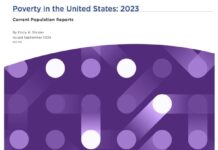
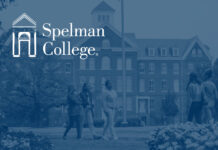

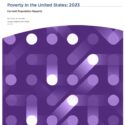
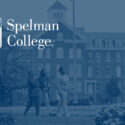
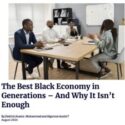


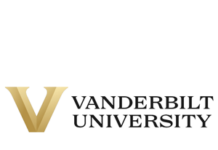
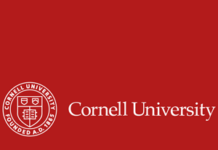

This so-called article is a shining example of the gross misinterpretation of HBCUs instead of discussing the voluminous historical and current racist attacks on HBCUs. From the onset, Turley starts off with the deficit narrative about HBCUs “Are they taken seriously in the academic world”? Whose world is Turley referencing? Let me guess, White academia within the USA and certainly not the global academic landscape. What Turley woefully fails to admit is that ongoing issue is not that HBCU faculty are not conducting substantive academic research. These White led and controlled academic journals who consistently “exclude anyone who does not share the attending social and intellectual identities and beliefs”. Can you say “White empiricism”?
When Turley asserts that HBCUs remain in a ‘second-class’ quagmire which is a mischaracterization on numerous levels. As such, when one tries to profess their superiority is in essence admitting their own inferiority and insecurities. The reality is that HBCUs have been on the receiving end of legislative (state and federal) benign neglect from fiscal resource allocation to outright material resources. In lieu of this, HBCU faculty continue to produce high quality research in the STEM field and social sciences that may not get published in these revered White journals like the American Journal of Sociology (AJS) or the American Sociological Review (ASR). The AJS and the ASR have been around since native born Black Americans were in chattel Slavery. Yet, it appears this same type of racist mentality is alive and well at the American Journal of Sociology or the American Sociological Review by the paucity of Black American faculty members from HBCUs in said publications.
In sum, it appears that Turley is contextually trying to absolve White academic journals and those who serve as the quasi-intellectual gatekeepers of their racist proclivities by refusing to publish high quality academic work from HBCU faculty. When this happens it actually harms the whole of society because many of those ideas to possibly cure diseases, make the planet more sustainable, or even solve many of the global conflicts will never see the light of day due to White academia intellectual insecurities in the 21st century. “They Not Like Us”.